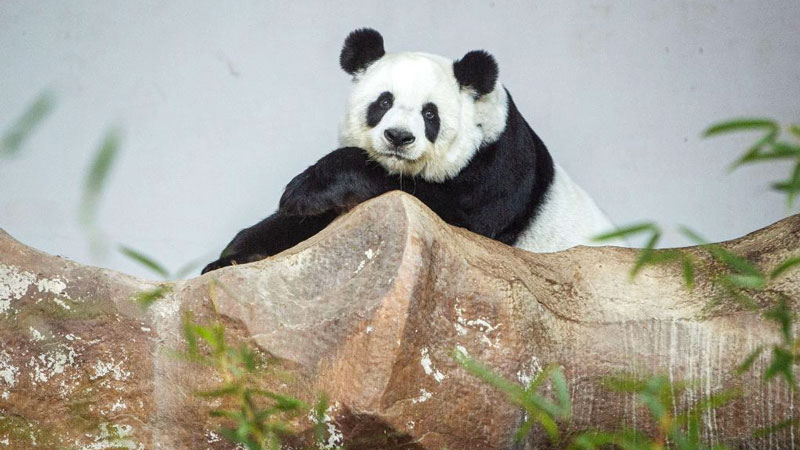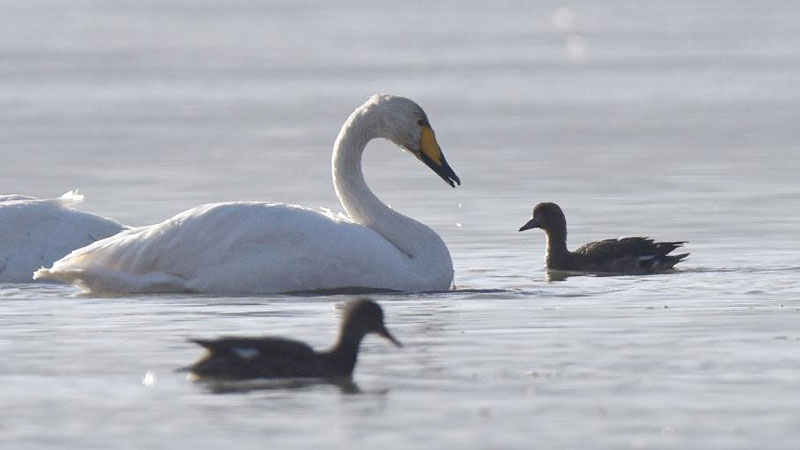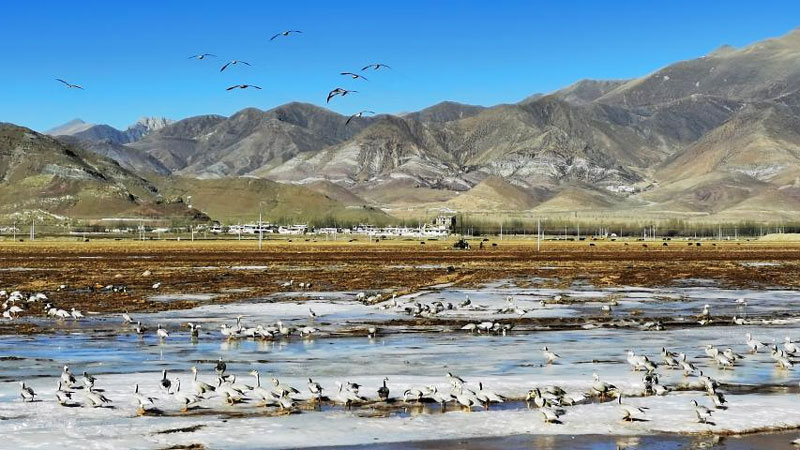Yearender: Türkiye mends fences with regional powers, mediates Russia-Ukraine conflict in year of active diplomacy

People attend a celebration marking the Republic Day in Istanbul, Türkiye, Oct. 29, 2022. Türkiye celebrated the 99th anniversary of the foundation of its republic on Saturday. (Xinhua/Shadati)
ANKARA, Dec. 27 (Xinhua) -- In 2022, Türkiye launched a diplomatic offensive with a number of initiatives to mend fences with regional rivals and actively mediate the Russia-Ukraine conflict.
Analysts said that Türkiye, which has complicated or tense relations with many regional heavyweights, played a big role in the shifting of geopolitics in the Middle East in the past year.
As Türkiye's economy struggled with shrinking trade and investment as well as skyrocketing inflation in 2022, the country increased its regional influence with its diplomatic initiatives to normalize ties with Gulf countries, Israel and Egypt.

Turkish President Recep Tayyip Erdogan (R) welcomes Saudi Arabia's Crown Prince Mohammed bin Salman Al Saud in Ankara, Turkey, on June 22, 2022. Saudi Arabia's Crown Prince Mohammed bin Salman Al Saud on Wednesday arrived in Ankara to start his first visit to Turkey since the death of the journalist Jamal Khashoggi in 2018. (Photo by Mustafa Kaya/Xinhua)
In April, Turkish President Recep Tayyip Erdogan paid his first official visit in years to Saudi Arabia, heralding a thaw in Türkiye's strained ties with the kingdom and the beginning of "a new era" of bilateral cooperation.
Saudi Crown Prince Mohammed bin Salman Al Saud visited Türkiye in June, signaling a return to the normalcy of the bilateral ties marred by the 2018 killing of Saudi journalist Jamal Khashoggi at the Saudi consulate in Istanbul.
The Turkish government has also taken steps to improve its relations with the United Arab Emirates (UAE), Israel and Egypt.
In February, Erdogan made his first official visit to the UAE in nearly a decade, in a bid to repair the strained ties. The two countries signed a dozen of agreements on cooperation in trade, agriculture, technology, defense and other sectors. Analysts said that the shared concerns over Iran were behind the reconciliation between the two countries which had feuded over many regional issues.

Turkish President Recep Tayyip Erdogan (R) and Israeli President Isaac Herzog attend a joint press conference in Ankara, Turkey, on March 9, 2022. Turkey is ready to cooperate with Israel in the field of energy, Turkish President Recep Tayyip Erdogan said Wednesday after a meeting with visiting Israeli President Isaac Herzog that aimed at normalizing bilateral ties. (Photo by Mustafa Kaya/Xinhua)
In early March, Erdogan met with visiting Israeli President Isaac Herzog during the latter's ice-breaking visit to Türkiye, in an effort to reset their tense relations due to Türkiye's strong criticism of Israel's policy toward the Palestinians. It was the highest-level Israeli-Turkish meeting held in Turkey in 14 years.
Turkish Foreign Minister Mevlut Cavusoglu traveled to Israel in late May, in the first such visit in nearly 15 years. It was followed by the announcement in August by the two sides to restore full diplomatic ties, including returning ambassadors, after a phone talk held by Israeli Prime Minister Yair Lapid and Erdogan.

Turkish President Recep Tayyip Erdogan (R) and Egyptian President Abdel-Fattah al-Sisi (L) shake hands on the sidelines of the 2022 World Cup in Doha, Qatar, Nov. 20, 2022. (Turkish Presidential Office/Handout via Xinhua)
The symbolic handshake between Erdogan and Egyptian President Abdel-Fattah al-Sisi on Nov. 20 at the opening ceremony of the 2022 World Cup in Qatar was described as "a new start" of the bilateral relations marred by rifts in the past years.
Cavusoglu said in late November that Türkiye and Egypt may restore full diplomatic ties and re-appoint ambassadors mutually "in coming months."
Türkiye's ties with Egypt, Saudi Arabia, and the UAE became frayed due to Ankara's support of the Muslim Brotherhood in Egypt during the so-called "Arab Spring" of popular uprisings in 2011. The Saudi-Turkish relations were further damaged by the killing of Khashoggi and Ankara's move to deepen trade and energy ties with Iran.

Soldiers are seen on the Syrian-Turkish border in Gaziantep province, Türkiye, on Dec. 2, 2022. (Photo by Mustafa Kaya/Xinhua)
Moreover, Erdogan has also expressed interest in reconnecting with his Syrian counterpart Bashar al-Assad and his regime after more than a decade of strained ties. Since the start of the Syrian civil war in 2011, the relations between the two neighbors have deteriorated.
"Türkiye does not have the luxury of closing in, isolating itself from the outside world and watching the events in its region by sitting on the fence," Erdogan, who is facing a presidential election in 2023, said in an address to the Turkish parliament in October. He underlined that Türkiye does not "seek escalation" with other countries.
After the breakout of the Russia-Ukraine conflict, Türkiye sought to strike a balance between the two sides.
Türkiye supplied Ukraine with drones, supported a UN vote condemning Russia's military operation, banned all combat ships from the Turkish straits, and blocked Syria-bound Russian aircraft from entering Turkish airspace. On the other hand, it opposed the Western sanctions on Russia, played an active role as a mediator in the conflict, and helped broker a deal to allow Ukrainian grain exports to reach global markets.

Turkish President Recep Tayyip Erdogan (C) meets with Russian and Ukrainian delegations before a fresh round of face-to-face peace talks in Istanbul, Turkey, March 29, 2022.Russia and Ukraine have concluded their fresh round of face-to-face peace talks here on Tuesday, which lasted for approximately three hours, according to media reports. (Xinhua)
Several rounds of diplomatic talks have been held in either Istanbul or Ankara, including the trilateral meeting of Turkish, Russian and Ukrainian foreign ministers, Russia-Ukraine prisoner exchange negotiations, and a meeting between Russian Foreign Intelligence Service chief Sergei Naryshkin and U.S. Central Intelligence Agency's Director William Burns.
Mustafa Nail Alkan, head of the International Relations Department of Haci Bayram Veli University in Ankara, told Xinhua that 2022 has been a successful year for Türkiye in terms of foreign policy achievements.
"Türkiye has been pursuing a multilateral and very dynamic foreign policy in recent years," he said, adding that Erdogan is the only leader within the NATO who has regular phone conversations or meetings with both Russian and Ukrainian leaders.
"Türkiye is pursuing a different foreign policy than before. In the past, Türkiye didn't engage too much in mediation, and this new multilateral policy is widely praised," Alkan said.
Photos
Related Stories
- Ukrainian president hopes for quick implementation of agreements with U.S.
- Facts about Russia-Ukraine conflict: Civil infrastructure damaged in Russia's shelling on Kherson
- Yearender: Russia-Ukraine conflict puts Europe's societies to the test
- Facts about Russia-Ukraine conflict: Russia says U.S. intelligence services, pharmaceutical companies involved in military bio program in Ukraine
- U.S. intelligence services, pharmaceutical companies involved in military bio studies in Ukraine: Russian Defense Ministry
Copyright © 2022 People's Daily Online. All Rights Reserved.









